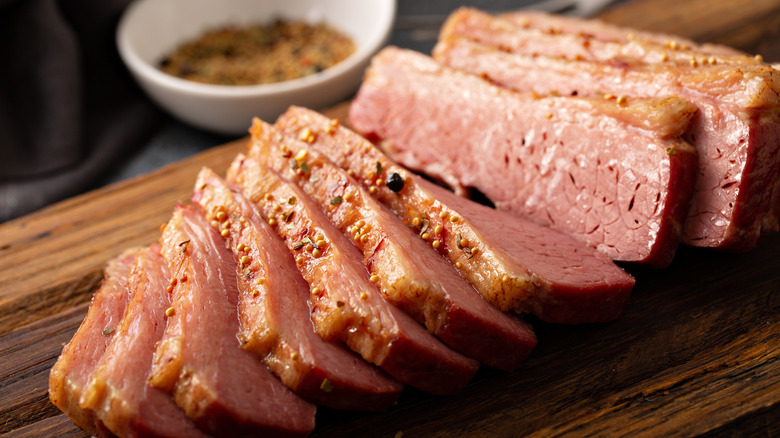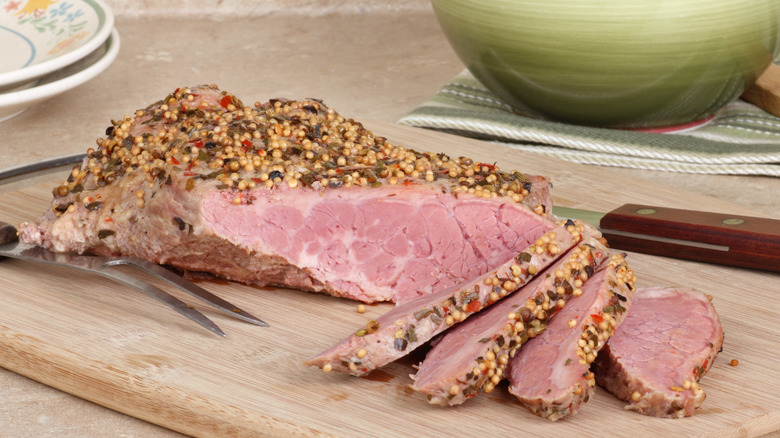How Did Corned Beef Get Its Name?
Christmas dinners, Fourth of July barbecues, and many holidays have big meals, but the food you eat will vary by family and region. Turkey at Thanksgiving can compete with St. Patrick's Day's corned beef and cabbage as the clear, consistent choice for the centerpiece of a holiday meal. Turkey makes sense as a holiday meal staple in the U.S. as it was a native bird that was big and common across the country, but as for corned beef — the immigrant origins of this dish have a much more complicated history. It goes back to the 17th century in Europe and also explains how the cornless dish got its confusing name.
The corned beef we eat today is not the same food that gave the dish its name. In Ireland, pork was traditionally the most affordable and popular meat, while cows were expensive and reserved for producing dairy products. Corned beef was produced in Ireland, but it only became a staple of Irish cuisine when immigrants came to the U.S. in the 19th century and found that beef was more affordable than in their home country. In particular, the corned beef produced by Jewish immigrants from Eastern Europe, which used affordable brisket, became a popular working-class Irish meal. Despite its Jewish origins, the meat kept its English name, "corned beef," which comes from the original definition of the word "corn."
Corned beef is named after the curing salts to preserve the meat
When we hear the word "corn," we think of, well, corn – but the term actually predates the consumption of maize in Europe. Stemming from the Latin word for grain, corn came to describe any seed or grain product in England, Scotland, and Ireland. In fact, corn would actually describe different crops based on what was more popular in a given region, such as oats in Ireland and wheat in England. Those things aren't used in making corned beef any more than maize is, but corn's association with grain also meant it was used to describe any small particle similar to a grain. Something like salt, for example.
All this language morphing converged in the 17th century when England banned imports of cattle from Ireland. Exporting cattle had been a big business for Ireland, so this was a problem — but the law only prohibited the import of live cattle. Ireland also had a much lower salt tax than England, so the solution was for Ireland to start producing salted, preserved beef, which could still be sold in England. The result was Irish corned beef, named after the "corns" of salt used to preserve the meat. Even though this may not be the Jewish corned beef we may think of, the name "corned" stuck as a term for any meat preserved this way — thus, preserved brisket as "corned beef" was born.

